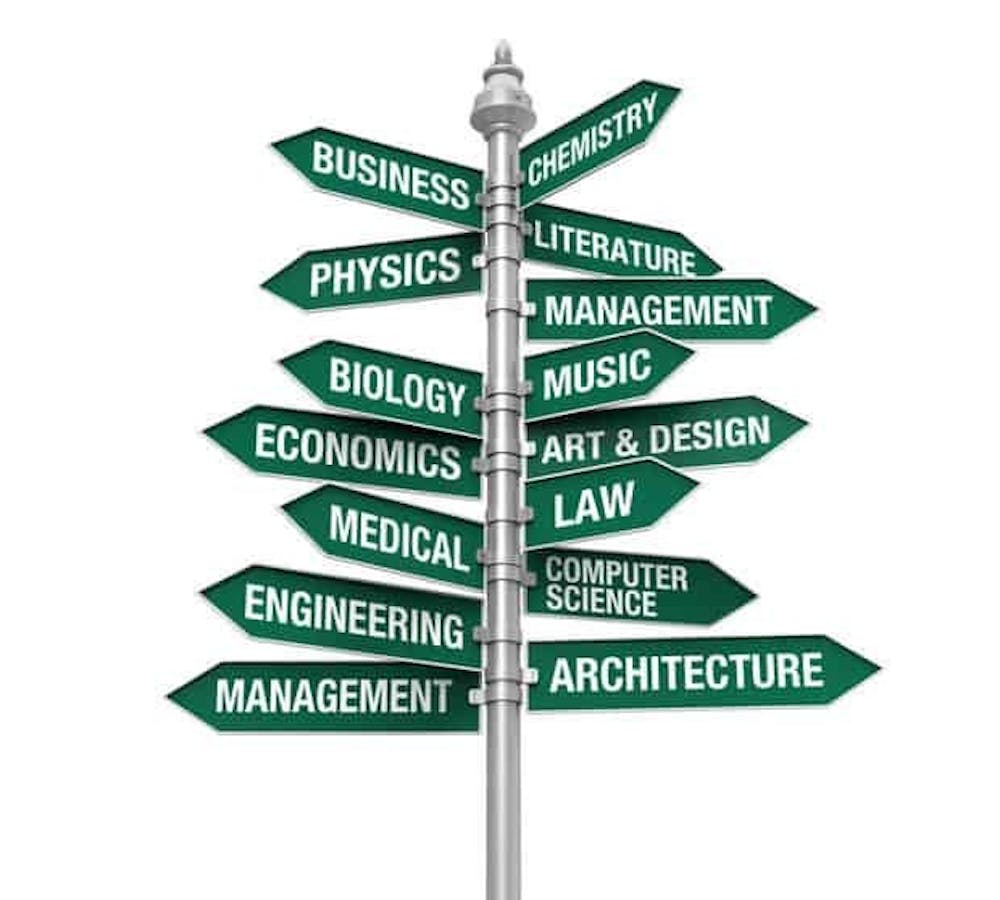While a significant concern for freshmen is selecting a major, a pressing concern among seniors is deciding how to apply their major of choice.
Education majors often become teachers, psychology majors often become counselors, biology majors often become biologists — you get the idea here.
But for some students, job opportunities outside of their majors may seem more appealing than those with more relevance to their majors.
On The Echo editorial board, we believe that majors are not as important as we often make them out to be.
“My concern is that at times we over-identify with our majors — that our major becomes a checklist of things that someone else tells us what to take,” Julie Borkin, assistant professor of communication, said.
Borkin believes that students’ over-identification with a major may lead them to leave valuable parts of themselves hidden or locked away.
However, a major holds value and exists for a reason.
“[A major] does help define a lane,” Borkin said.
For some students, this lane is well-defined, while for others, the path may not be as clear — and that’s OK.
Assistant Director of Admissions Jared Burgess began his college career as an elementary education major. While in college, Burgess was assigned to write a one-page paper on why he wanted to become a teacher.
“I got to the end of 15 minutes and had a blank piece of paper and realized I couldn't exactly articulate that for myself,” Burgess said. “And that was kind of the first step that I realized, I don't know if I actually really want to do this.”
After having this sort of “crisis,” Burgess decided to switch his major to business and later, to biology.
While still enjoying biology, he ended up approaching a different career path than expected: admissions.
Having now worked in Christian higher education for 18 years, Burgess feels as though he has discovered his calling.
“I don't regret any of it,” Burgess said. “I don't regret not pursuing that path and I don't regret pursuing the path that I have, but I think it [allowed for] a lot of introspection.”
Working with high school seniors, Burgess strives to encourage them to be patient, but also to explore their options.
He believes it is important for students to be realistic with their passions and interests — not pursuing a field because it’s what their parents want them to do, but because it’s something they are personally passionate about.
“I sometimes don’t like asking, ‘What do you want to major in?’” Burgess said. “Because it really can feel like it puts you in a box. It really feels like it constrains you — like I have to decide what I want with the rest of my life right now.”
Perhaps, a student has discovered too late that their major doesn’t align with their passions or interests.
Denise Flanders, assistant professor of biblical studies, urges these types of students to think about the transferable skills they can develop while at school and perhaps, utilize those skills within a different field.
“You’re going to use a lot of those skills so refine them, sharpen them, don't just skate by but try to think on, ‘what could be useful to me?’ and then explore that,” Flanders said.
For seniors, the task of finding a job is likely of great interest or concern.
“There's something to say for not discounting a job opportunity or an opening just because it doesn't align exactly with what you studied or the content seems pretty different,” Flanders said. “Look at what skills are needed.”
As seniors navigate the job search process, Flanders believes it is important that seniors understand that their majors hold value but are not the end-all, be-all.
Similarly, Burgess advises graduating seniors to be proud of what their diplomas say, but to not be constrained by that.
“God has gifted all of us with unique talents, with unique skill sets, with unique experiences,” Burgess said. “He'll put you in a place where He wants you to be collegially, professionally and socially in your community. He'll put you where he wants you — you just have to be willing and open to hear that.”




